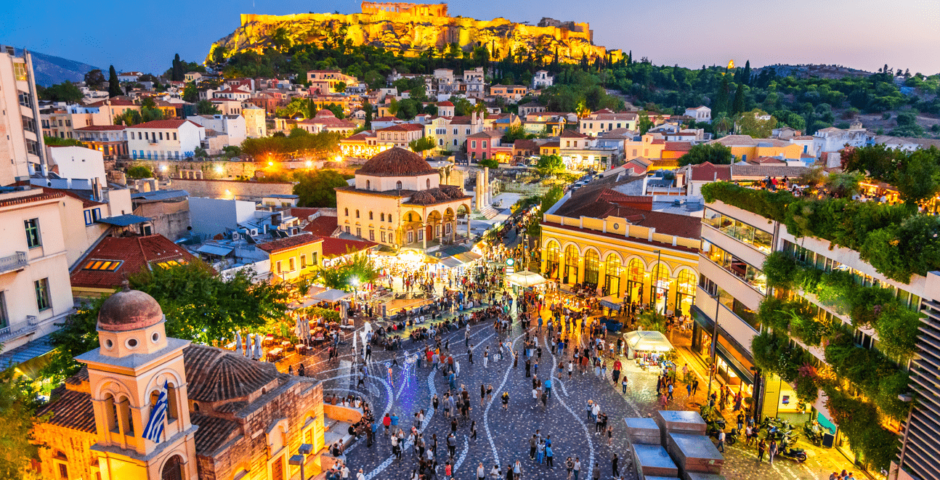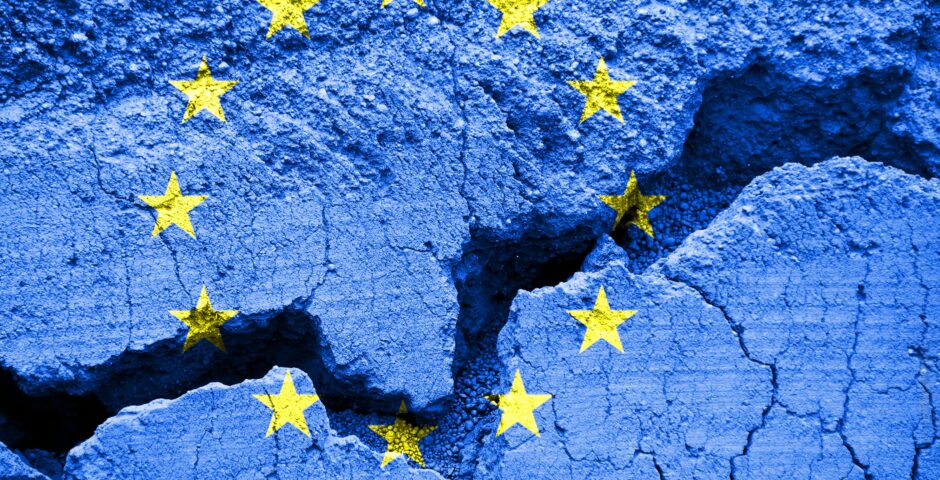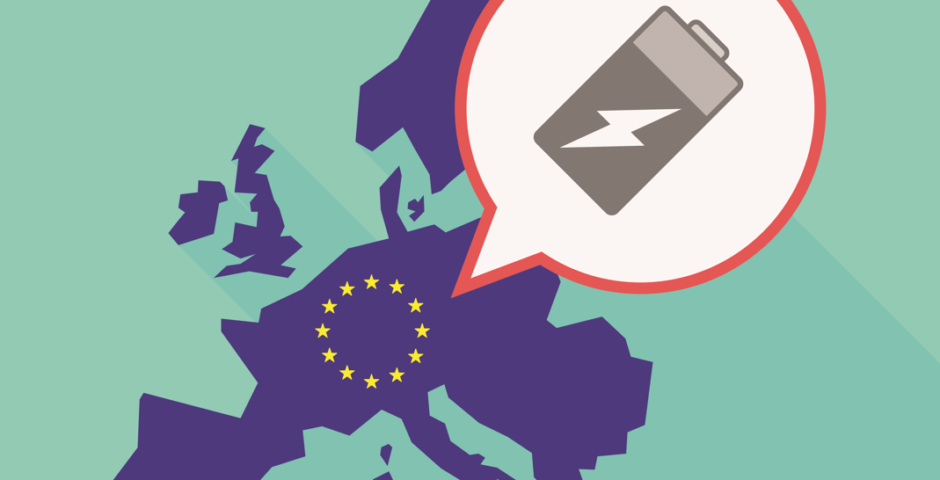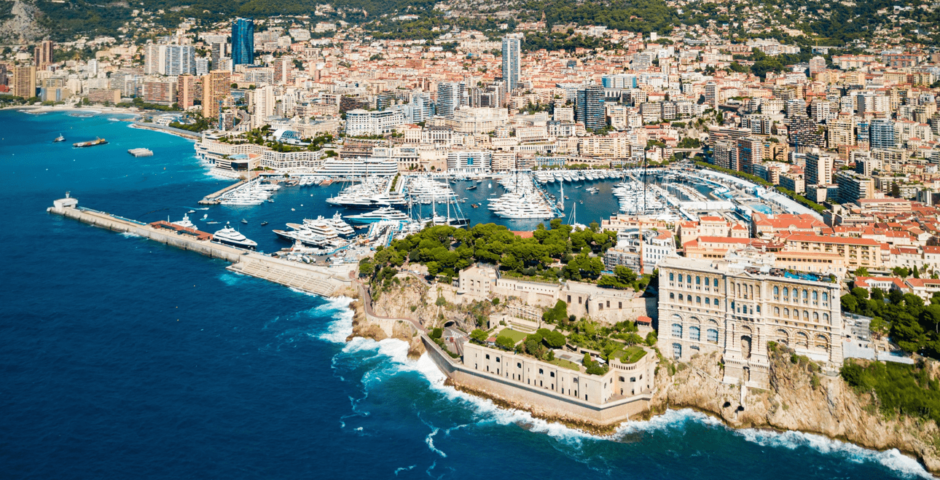Country profile of Greece: Europe’s black sheep and top vacation spot

From Democracy’s Cradle to Modern Challenges and Controversies.
The birthplace of European civilisation, Greece, is like a time machine that takes you back to the days of ancient gods, philosophers, and epic battles. Famous for its stunning landscapes, excessive coffee consumption and the hospitality of its people, Greece has been a key member of the European Union (EU) since 1981. While unfortunately mostly associated with the financial crisis in recent years, this article shall help you better understand the country where democracy was first conceived as a form of governance, its challenges and what can be expected in the European Parliament (EP) elections this June.
Geography
Alright, so picture Greece like a jigsaw puzzle piece at the southeastern end of Europe, where it’s all sunny and Mediterranean vibes. You’ve got the mainland, which resembles a hand with three fingers sticking out into the Aegean Sea: there’s the Peloponnese in the south, Central Greece in the middle, and Macedonia in the north. But wait, there’s more! Sprinkled all around are about 6,000 islands and islets, though only around 200 of them are inhabited. Yes, Greece is like a big playground of islands, with stunning coastlines, rugged mountains, and a whole lot of history crammed into every nook.
Athens, the capital, is a must-visit with its iconic Acropolis towering over the city, showcasing the Parthenon, an ancient temple dedicated to Athena, the goddess of wisdom. Then you’ve got Delphi, which the ancient Greeks believed was the centre of the world, with its famous oracle and stunning ruins. Santorini is like stepping into a postcard with its whitewashed buildings perched on cliffs overlooking the deep blue sea. And if you’re into history and mythology, Crete is where it’s at with its Minoan palaces and the legendary labyrinth of the Minotaur. So, whether you are looking for cultural heritage or breathtaking nature, Greece delivers on all fronts.
Population and economy
Greece is a vibrant tapestry of about 10 million people, each contributing their own unique flavour to the mix. Representing the southern European mentality, family and community are central to Greek life, with traditions passed down through generations. In the century of secularity, the Greek Orthodox Church still plays a big role in the country. It is heavily involved in education and wields significant influence in politics and important debates such as the overcoming of the economic crisis.
In terms of the economy, Greece has faced its share of hurdles, especially in recent years with the financial crisis. Tourism is the cornerstone of the country’s economy, drawing millions of visitors each year to soak up the sun-drenched beaches, explore ancient ruins, and indulge in delectable cuisine. While that brings money into the state, it does not necessarily benefit the average Greek citizen, because the sector is mostly in the hands of a limited number of rich people. Additionally, transnational corporations and foreign investors have become more present in recent years.
The poor management of the field of tourism that is so important for Greece has exacerbated the already tough situation of local communities. Therefore, efforts are needed to revitalise and diversify the economy. Apart from tourism, agriculture plays a significant role, with olives, olive oil, and feta cheese being prized exports. Shipping is also a major industry, capitalising on Greece’s strategic location at the crossroads of Europe, Asia, and Africa. Despite economic challenges, Greece continues to evolve, embracing innovation and entrepreneurship while cherishing its rich cultural heritage.
National politics
The political system operates within the framework of a parliamentary republic, with a unicameral legislature known as the Hellenic Parliament. Over the past few years, Greece has witnessed significant political developments, including the rise of new parties and shifts in electoral dynamics. After the exit of Prime Minister Alexis Tsipras, who was first elected on an anti-austerity platform but then proceeded to sign the third bailout, SYRIZA (left) lost the leading role to New Democracy (centre-right). Led by Prime Minister Kyriakos Mitsotakis, the New Democracy government has pursued policies focused on economic recovery, attracting foreign investment, and implementing reforms.
In an unlikely move for a conservative party, New Democracy had a groundbreaking moment this year with the legalisation of same-sex marriage, making Greece the first Orthodox country ever to do so. However, for the Greek society that is still struggling economically, this seems to be more fireworks than tangible progress. Challenges such as high unemployment and social inequality persist, contributing to political polarisation and the emergence of populist and far-right movements. This stems from far-right rhetoric about the heavy and unjustified involvement of international institutions in the economic crisis, making the argument for the lost sovereignty of Greece. The opposition, including the SYRIZA party and other smaller parties, continues to advocate for alternative approaches to address these issues. Amidst these dynamics, Greece’s political landscape remains fluid, shaped by ongoing debates over governance, economic policy, and the country’s role within the European Union.
Greece and the EU
Greece’s relationship with the EU has been a rollercoaster ride marked by both challenges and opportunities. Joining the EU in 1981 was a significant milestone for Greece, marking its integration into the broader European community after decades of political instability and economic struggles. EU membership brought access to financial assistance, infrastructure development, and opportunities for trade and investment. However, Greece’s journey within the EU has also been punctuated by moments of turmoil, most notably during the sovereign debt crisis in the late 2000s. The country faced severe economic hardships, leading to three bailouts and austerity measures imposed by the EU and the International Monetary Fund (IMF).
Exacerbated by factors like high public debt, unsustainable spending, and a global economic downturn, Greece faced severe financial challenges. Those include soaring unemployment, austerity measures, and social unrest. In response to the crisis, the European Union, alongside the IMF, provided bailout packages to Greece, totalling hundreds of billions of euros. These bailout programs aimed to stabilise Greece’s economy, implement structural reforms, and restore investor confidence. However, the austerity measures imposed as part of the bailout conditions sparked public discontent and political turmoil, with three-quarters of the population thinking the bailouts did more harm than good. Aimed at reducing government deficit, austerity measures included cuts in public wages and expenditure and increase in taxes.
Despite the hardships endured, Greece made significant strides in implementing reforms, restructuring its economy, and achieving fiscal consolidation, albeit with mixed results in the sense that the situation of the average citizen remained dire. While the role of the EU in supporting Greece during the crisis was crucial, it also led to debates about sovereignty, democratic accountability, and the long-term implications of EU intervention in member states’ economies. All of this, combined with the narrative about the “lazy Greeks” that accompanied the crisis’ developments, have definitely contributed to the drop in popularity of the EU in Greece.
Greece has also been at the forefront of Europe’s migration crisis, grappling with waves of refugees and migrants crossing its borders, particularly from conflict-torn regions in the Middle East and North Africa. The influx of people seeking asylum has strained Greece’s resources and infrastructure, leading to humanitarian challenges and social tensions. In response, the EU has provided financial assistance, logistical support, and cooperation agreements to help manage the migration flow. However, the EU’s migration and asylum policies have faced criticism for being disjointed and insufficient, leading to disparities in burden-sharing among member states, leaving the biggest share to the countries at the borders. In the Greek context, EU policies have often been criticised for their inability to address the root causes of migration, effectively manage asylum applications, and ensure fair distribution of responsibilities among EU countries. As a result, Greece continues to grapple with the complexities of migration and sending “illegal” migrants to often dangerous contexts largely due to inefficient application procedures, which can be tackled better at the EU level.
Apart from having a central role in global crises, some Greek MEPs have stirred crisis-like episodes in the EP during the outgoing mandate. Eva Kaili has for sure made herself famous, not as the EP vice president but rather for the wrong reasons. She is the face of the cash-for-influence Qatargate scandal that saw some MEPs getting quite substantial sums of money in exchange for advocating for certain issues and voting in certain ways in coordination with external actors. After her father was caught in front of a certain Brussels hotel with a suitcase bursting with cash, Eva Kaili has been in limbo with the Belgian court. She spent two and a half months in jail and is currently awaiting another trial. For her consolation, she is not the only Greek to be incarcerated during their term. Ioannis Lagos is currently serving a 13-year sentence for being a key figure in the activities of the now-dissolved neo-fascist party Golden Dawn after his immunity was waived in 2021.
EU Parliament elections 2019
Total seats: 21
Turnout: 59%
In the 2019 elections in Greece, New Democracy emerged as the dominant force, securing 33.12% of the vote and winning 8 out of the 21 seats allocated to Greece in the EP. Syriza, the ruling party at the time, came in second with 23.75% of the vote and 6 seats. The elections showcased a significant shift in Greek politics, with New Democracy gaining momentum amidst voter discontent with the incumbent government’s handling of economic and social issues.
| Party | Orientation | European fraction | Seats |
| New Democracy | Liberal-conservative / centre-right | European People’s Party (EPP) | 8 |
| Syriza | Socialist / left-wing | Confederal Group of the European United Left – Nordic Green Left (GUE-NGL) |
6 |
| Movement for change | Social democratic / centre-left | Alliance of Socialists and Democrats (S&D) | 2 |
| Communist Party of Greece | Communist / far-left | Non-attached members (NI) | 2 |
| Golden dawn | Neo-fascist / far-right | Non-attached members (NI) | 2 |
| Greek solution | Nationalist / right-wing to far-right | European Conservatives and Reformists (ECR) | 1 |
A look ahead
Based on the recent national elections and prevailing sentiments, the EP elections in Greece may witness a significant portion of the electorate abstaining from voting. With New Democracy, the current governing party, likely to maintain its leading position, the results may mirror the outcomes of the national elections, potentially indicating increased support for (far)right parties. However, a prevailing sentiment among Greeks regarding the insignificance of European elections could lead to overall apathy towards the process. Despite these factors, the composition of the EP in Greece may reflect a continuation of political trends seen at the national level, albeit with varying levels of engagement from the electorate. One thing is crystal clear though – there will be no Golden Dawn in the new EP.
Iva Dzhunova holds a BA in International Relations from the University of Groningen and is now pursuing an MA in European Policy at the University of Amsterdam.
Image: Shutterstock




